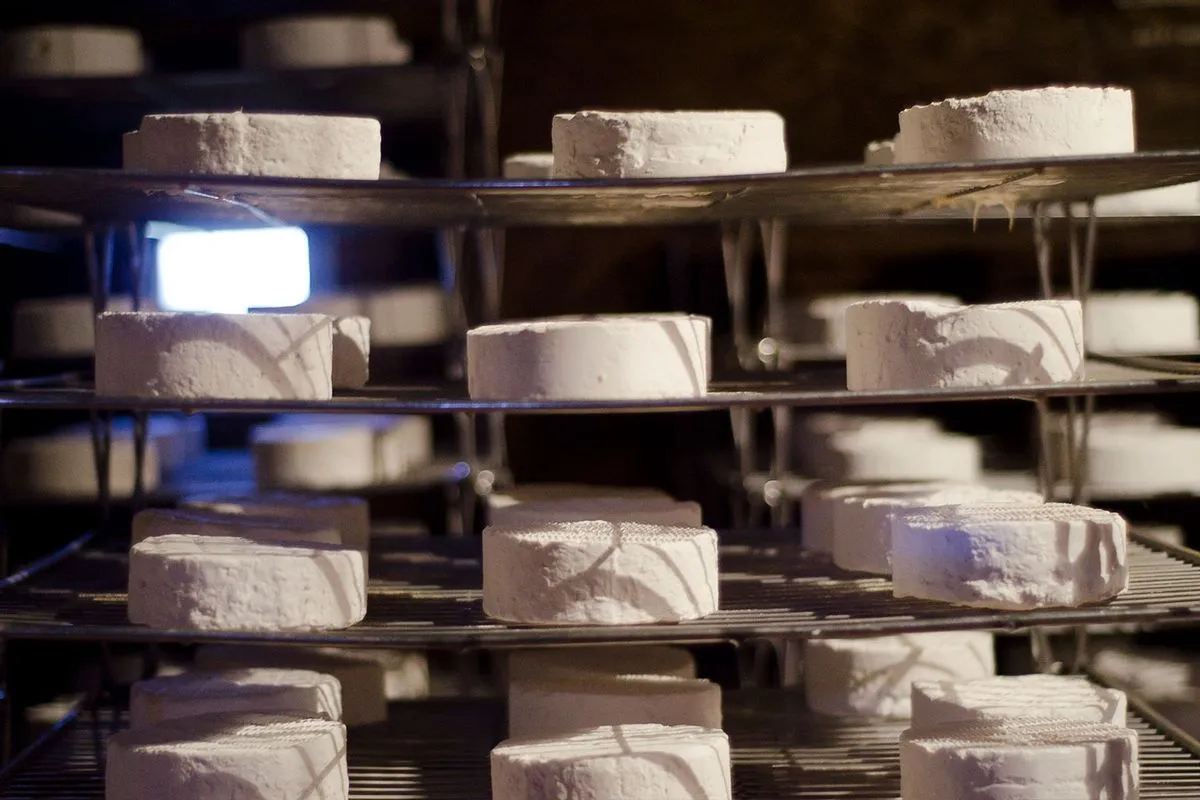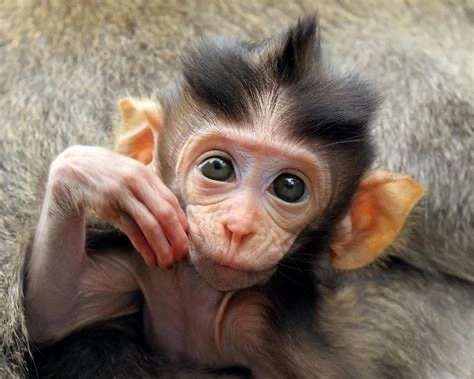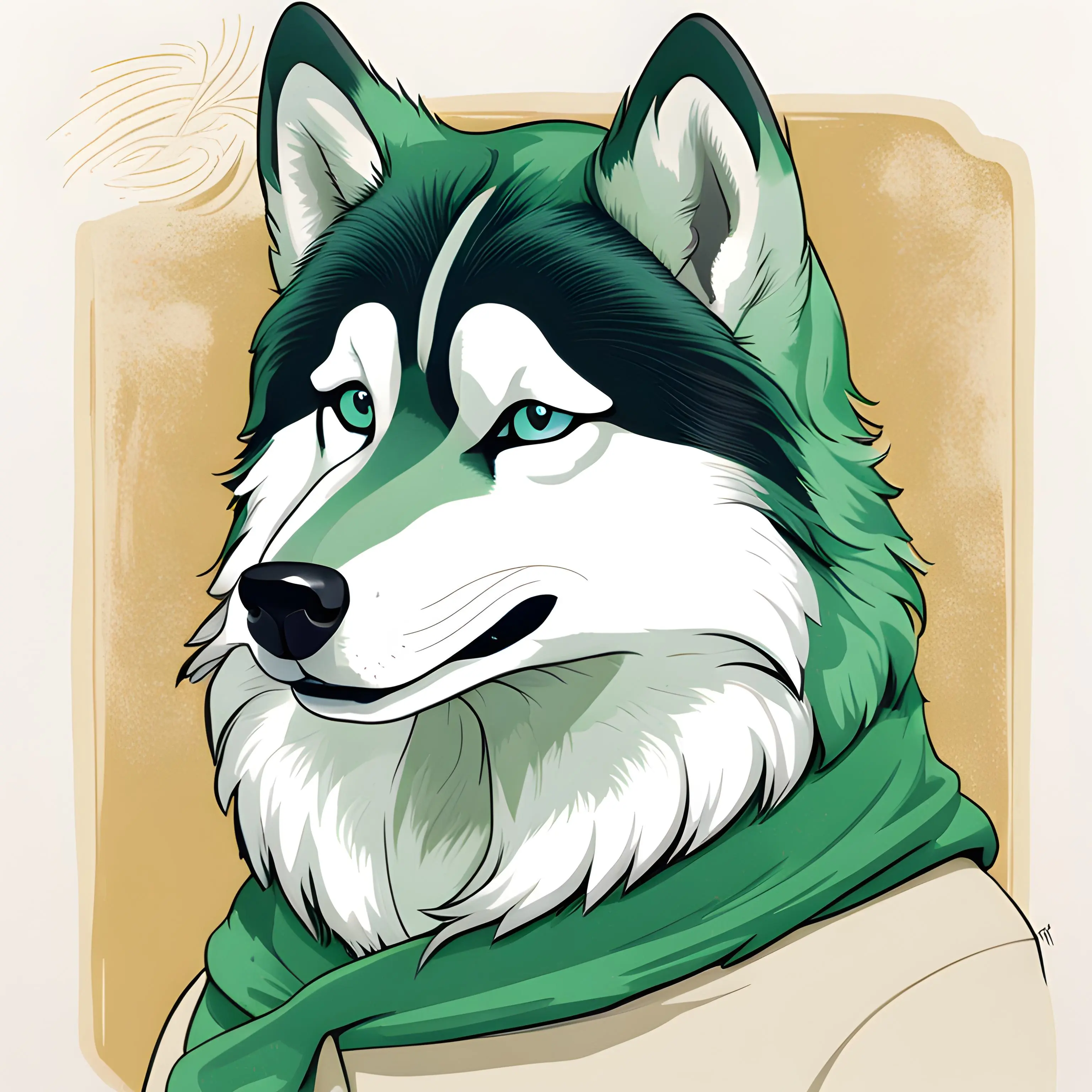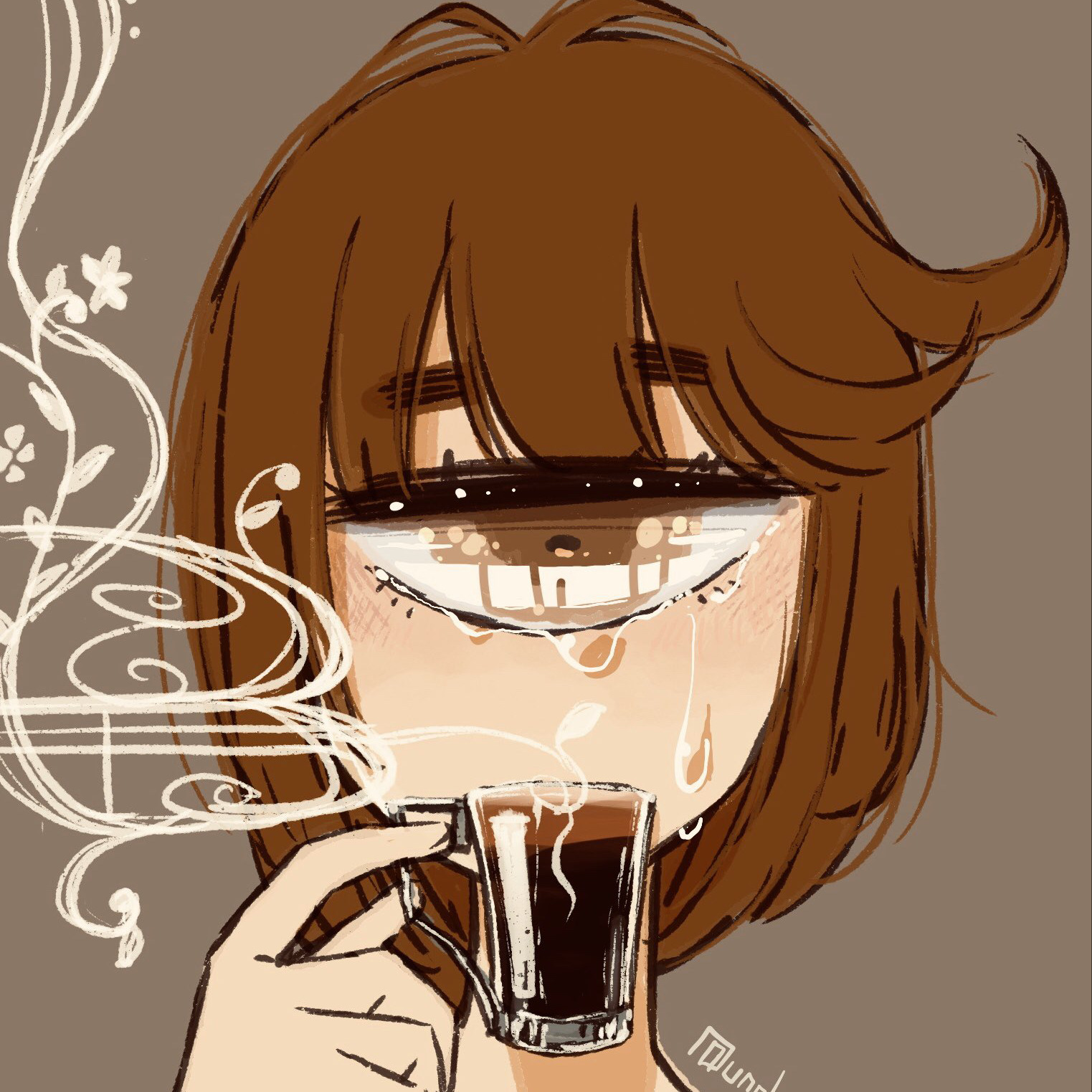- cross-posted to:
- [email protected]
- [email protected]
- [email protected]
- cross-posted to:
- [email protected]
- [email protected]
- [email protected]
Countless fans took to social media to share ways they’re enjoying brie before the cheese is gone for good
Ok i totally did not expect a cheese(technically the fungus) to go extinct but here we are. I wonder how it grow naturally since it has to be cloned.
This seems like a really good time to test out some CRISPR adjustments… I mean if it’s going to die out anyway, may as well tinker with it now and see if they can reintroduce sexual gene transfer. Let it breed itself into robustness once more. Probably change the taste but that’s the price.
“you know, I really liked brie before you could taste the penicillin semen in it.”
You can’t just quote the social media trend statement and not what is happening to the cause ‘extinction’ of a cheese, whatever that even means.
Edit: tl;dr: Penicillium camemberti is supposedly incapable of sexual reproduction so they clone it but that’s not working so great lately; no genetic diversity, etc.
… but they do?
Unlike most molds, Penicillium camemberti can’t reproduce sexually with other fungi to create new genetic diversity. As a result, cheesemakers have to clone it — but that has become increasingly difficult because of mutations that interfere with the fungi’s ability to produce spores.
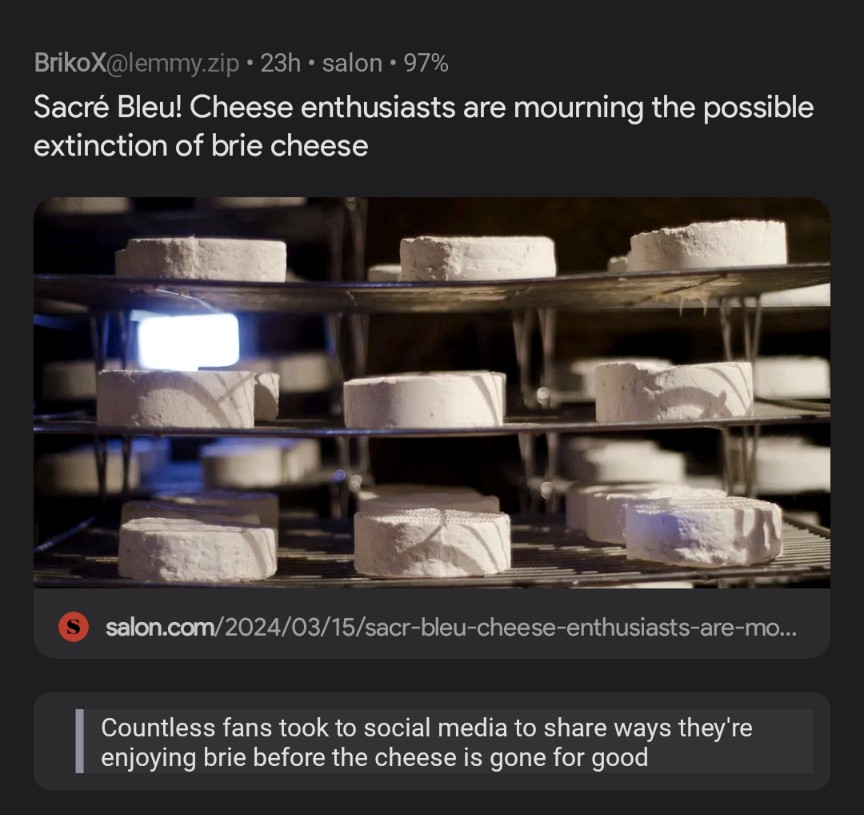
I only see a quote about people cheese posting before the briepocalypse. Going into the article to find what you quoted is what my tldr is based on.
I don’t see why they can’t be allowed to focus on the public responce as they provide evidence in there article to back up the cheese claim that is is “going extinct”. While its not completely true, it is true enough for the average individual. Additionally since the scientific backing is uncontroversial, there’s no need to focus on the reasoning (letting the curious research further if they desire) and most of there viewers probably won’t be as interested in the intracity of DNA cloning defects anyway.
If the cheese scientists come up with a replacement, I’d be down for trying Brie 2.
2 Penicillium 2 Camemberti
Brie 2: Electric Sacre Bleu
Back to the Brie 2
The fungus originated through artificial selection of P. biforme around 1900, which in turn was a result of artificial selection among P. fuscoglaucum.[8]
In 2024, the French National Centre for Scientific Research warned that the spore-producing ability of albino strains of P. camemberti have declined due to prolonged vegetative reproduction. The Norman cheese industry now struggles to find enough spores to inoculate their cheese with.[10]
The problem is that originally, up to the 50s, the Brie and the Camembert’s were slightly greenish/grayish.
The strain of molds have been selected to only keep the nice white that we know today but the problem is that by doing so we drastically reduced the genetic diversity of these organisms.
Borgonzola and Camembert are good alternatives.
Removed by mod
Oh know! We must do something
Going the way of the Asgard. Bummer!
Damn son. It’s one of my favorites


